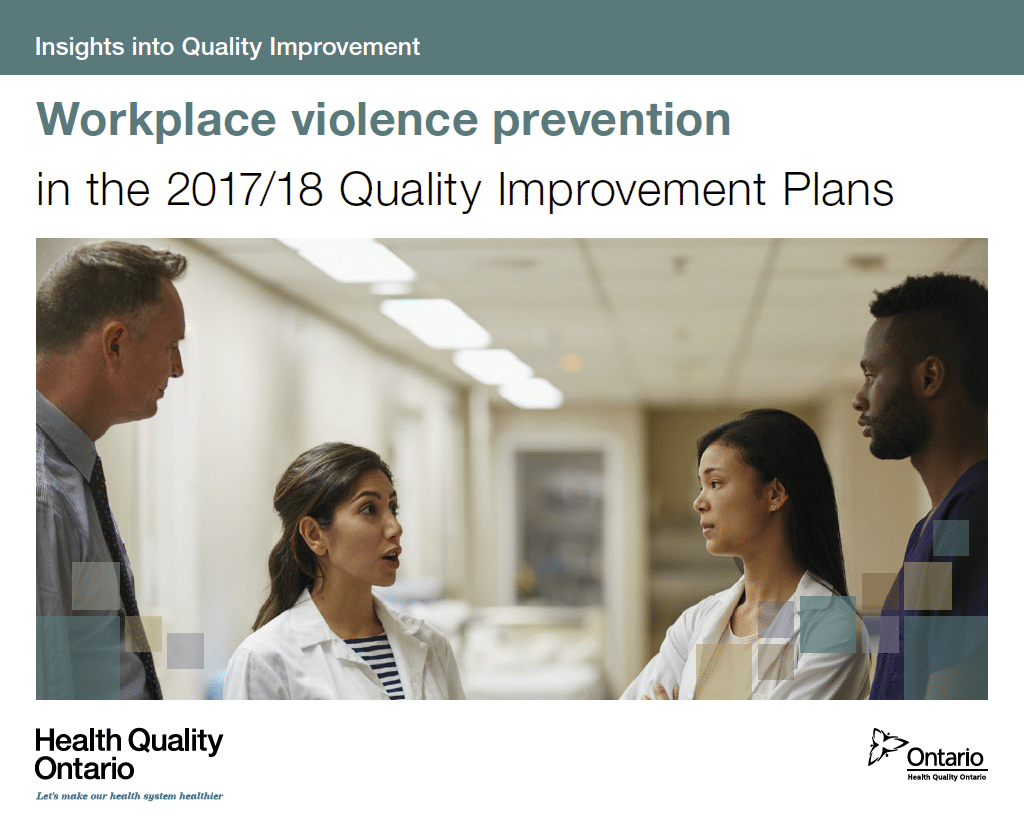
Research, drawing on a variety of different health care organizations’ experiences, illustrate emerging best practices or leadership

Health Quality Ontario: Overview of Quality Improvement Plans. The purpose of this report is to highlight specific Ontario organizations’ efforts to address workplace violence as described in their 2017/2018 Quality Improvement Plans. Through this report, we hope to share best practices among organizations, and to inform work that is currently ongoing.
Leading Practices, 2011. The COMPASS (Centre for Collaborative Child and Family Treatment) team has found that implementing collaborative approaches for understanding and addressing challenging/aggressive behaviors has a significant impact on patient and staff safety, as well as client and family recovery, and the quality of the staff’s work life.
This February 2018 report details the findings of an Institute for Work & Health study that looked at how five acute-care hospitals in Ontario implemented the violence prevention legislation, to what effect, and the challenges they faced along the way. Kosny A, Tonima S, Ferron EM, Mustard C, Robson LS, Gignac MA, Chambers A, Hajee Y
The Mental Health Commission of Canada initiated the three-year Case Study Research Project to investigate the progress of Canadian organizations which were implementing the National Standard of Canada for Psychological Health and Safety in the Workplace.
July 1999 report by Occupational Health & Safety Agency for Healthcare in BC. To this end, the Provincial Violence Prevention Steering Committee has developed a framework outlining the elements of a Best Practice Violence Prevention Program, to support British Columbia’s health care stakeholders and, specifically, joint Regional Violence Prevention Committees and local Joint Occupational Health and Safety Committees.
An evaluation, by WorkSafe BC and Healthcare Benefit Trust (April 2004), of interventions in five long-term care facilities to improve education and training, policies and procedures, and teamwork.